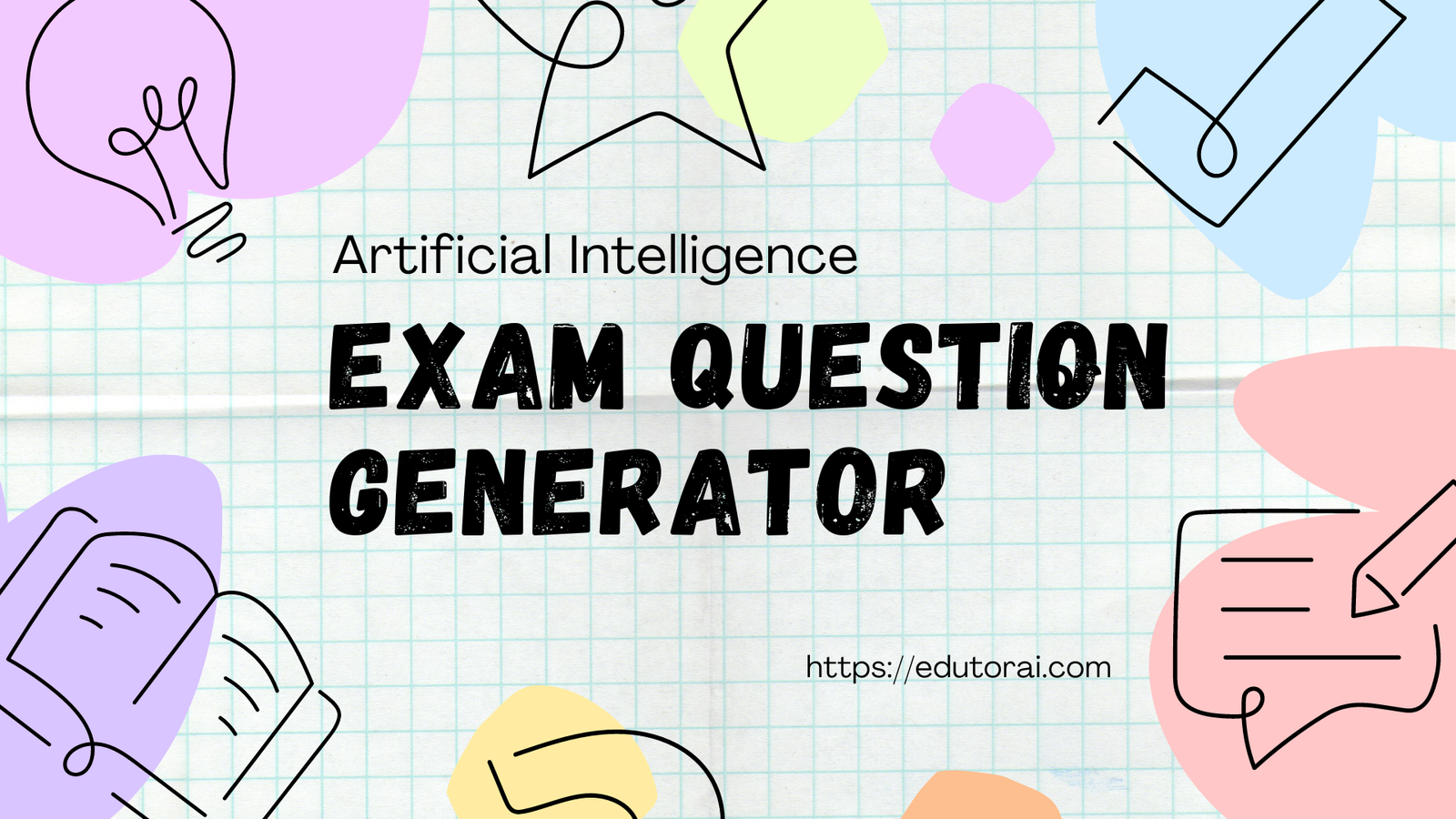Notifications

6 minutes, 49 seconds
-87 Views 0 Comments 0 Likes 0 Reviews

In today’s fast-paced digital world, the ability to generate high-quality questions quickly is invaluable. Whether you are an educator seeking to enhance student engagement, a content creator looking to generate stimulating quizzes, or a professional conducting training sessions, crafting thoughtful questions can be a time-consuming endeavor. Enter the AI question generator—an innovative tool designed to streamline the question creation process. This article delves into the mechanics of AI question generators, their applications, benefits, and the role they play in various fields.
AI question generators leverage advanced algorithms and machine learning techniques to automatically create questions based on specific inputs or prompts. These systems analyze vast amounts of data, learning the nuances of language and context to formulate questions that are contextually relevant and well-structured. Most AI question generators can produce various question types, including multiple-choice, short answer, and open-ended questions. Utilizing natural language processing, these tools can assess the relevance of topics and keywords provided by users, ensuring that the generated questions align with desired learning outcomes or thematic content.
In an increasingly data-driven world, the demand for efficient questioning techniques has never been greater. Educators, businesses, and content creators often struggle to develop high-quality questions that not only test knowledge but also stimulate critical thinking. Traditional methods of question creation can be tedious and time-consuming, often requiring significant effort to brainstorm, refine, and format. As organizations strive for effectiveness and engagement, the integration of AI into the question generation process offers a solution that saves time while maintaining the quality and relevance of questions. This shift not only enhances productivity but also elevates the overall experience for participants, whether in a classroom, workshop, or online environment.
AI question generators can be utilized in a variety of fields, making them versatile tools with broad applications. In education, teachers can use these generators to create quizzes, practice tests, and discussion prompts, allowing them to focus on delivering content and engaging with students rather than spending hours crafting questions. In the corporate world, trainers can develop assessment materials and feedback forms that accurately gauge the knowledge of employees, ensuring training effectiveness. Content creators can also benefit from AI-generated questions to enhance their articles or blog posts, fostering deeper engagement with their audience. The wide applicability of these tools underscores their significance in promoting learning and interaction across different sectors.
One of the key benefits of using AI question generators is their ability to promote critical thinking skills. By generating a diverse array of questions, these tools encourage learners to engage more thoughtfully with the material at hand. Questions that prompt analysis, evaluation, and synthesis challenge participants to think critically, moving beyond mere recall of information. Additionally, well-crafted questions produced by AI can highlight various perspectives on a topic, encouraging discussions that delve deeper into subjects. These discussions foster an environment where participants feel comfortable exploring ideas and articulating their understanding, ultimately enhancing their critical thinking capacities.
AI question generators offer the advantage of personalization, allowing users to tailor questions to meet specific learning objectives. By inputting desired topics, keywords, or learning goals, users can guide the AI in producing questions that align closely with the intended outcomes. This capability is particularly beneficial in educational settings, as teachers can ensure that assessments directly reflect the content covered in their curriculum. In professional training environments, tailored questions can be created to assess competencies relevant to particular job roles or industry standards. This level of customization ensures that generated questions not only evaluate knowledge but also support targeted learning and development.

While AI question generators can efficiently produce a variety of questions, there are inherent limitations to their capabilities. AI systems are constrained by the data they have been trained on and may struggle with specific contextual nuances or complex topics. Therefore, integrating human insight is critical for achieving the best outcomes. Combining AI-generated questions with expert review allows educators and professionals to refine questions, making them more nuanced and aligned with specific learning goals. This collaboration between AI and human expertise can significantly enhance the accuracy, relevance, and effectiveness of the generated questions.
As technology continues to evolve, the future of AI question generation holds exciting possibilities. Advancements in machine learning and natural language processing are likely to lead to more sophisticated algorithms that produce even more relevant and contextually rich questions. Integrating features like real-time feedback and adaptability to individual learning styles could further optimize the effectiveness of AI question generators. As these tools become more sophisticated, they will undoubtedly transform how we approach questioning in education, training, and content creation. The potential for these innovations promises to make questioning not only a more efficient process but also a more enriching experience for all involved.

